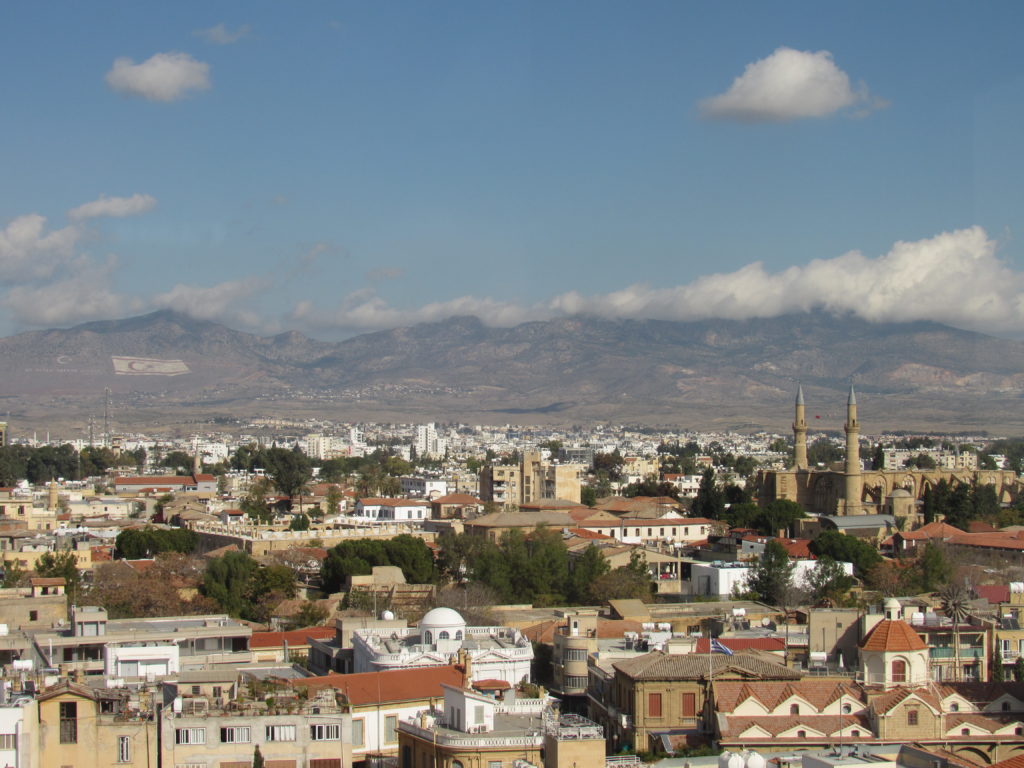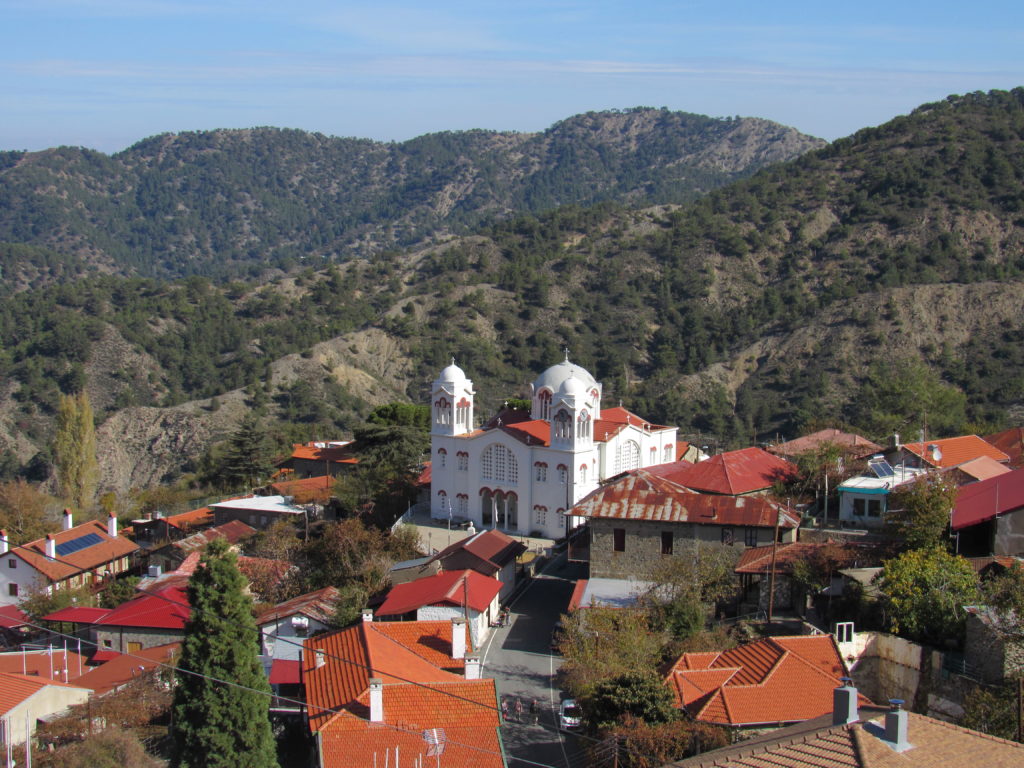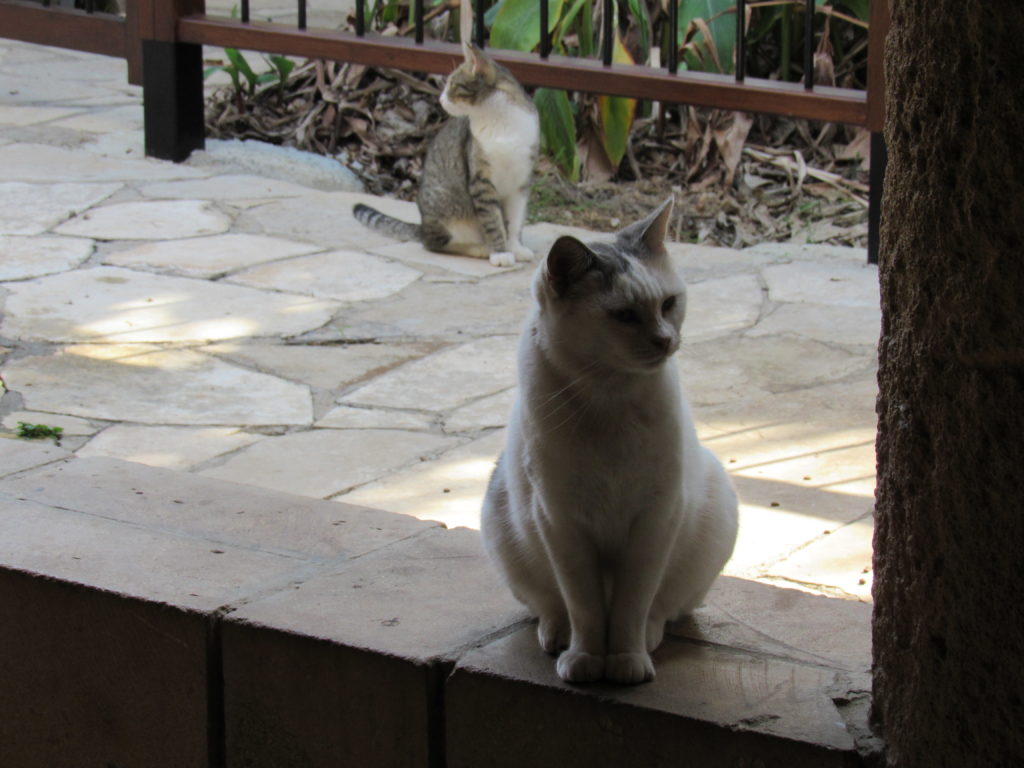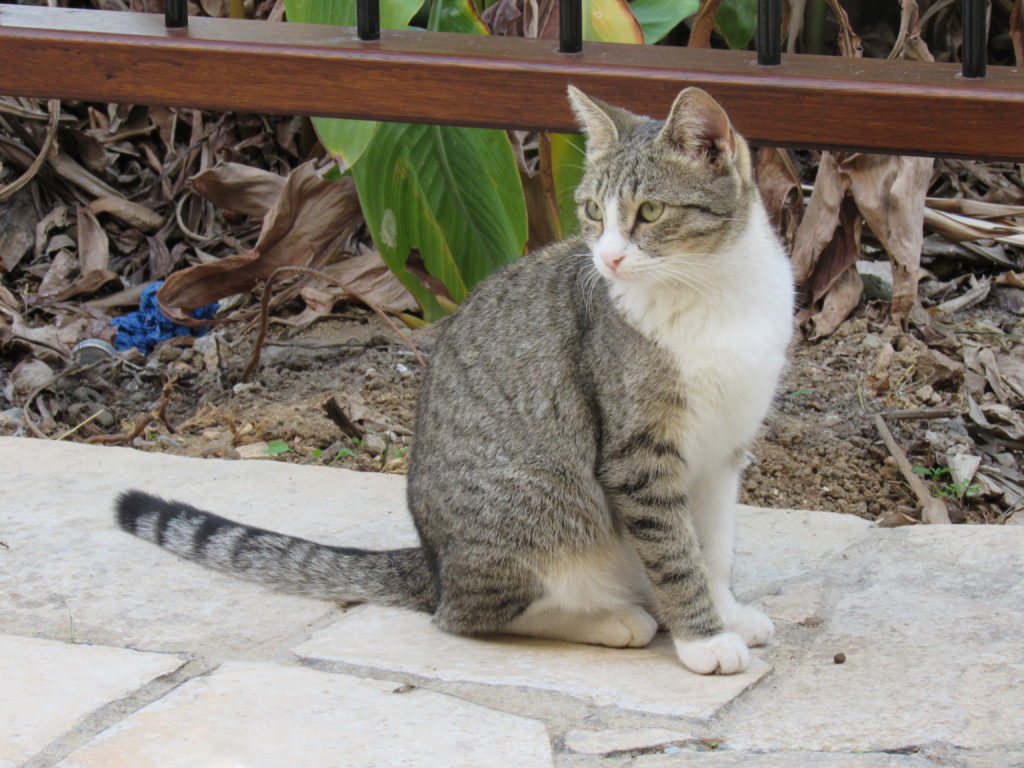
Last month we decided to take advantage of the off-season and spent a long weekend in Cyprus; one night in Nicosia and then two in the Troodos mountains. The flight is an hour, so if you forget about the hassle of getting to and from the airport it is the perfect short getaway from Israel.
Cyprus and Israel share a number of striking similarities: while Cyrpus is an island, Israel certainly seems like one metaphorically; both are stuck on protracted disputes over sovereignty and the status of certain minorities. But a more immediate similarity was finding ourselves surrounded by large numbers of feral cats. We had only to go as far as the airport bus stop before we encountered a cluster of skittish felines just off the grassy verge. It would be the first of many we’d encounter.
Cyprus now has around 1.5 million stray cats — that exceeds the human population of Cyprus of just under 1.2 million. For perspective, the UK has a population of 66 million, and the latest cat census puts the total stray and feral population at 10 million. (Israel has roughly 2 million cats out there and a population of 8 million.) Both Israel and Cyprus have half-hearted spay and neuter programs that attempt to curb the population growth. According to one article I found Cyprus and Israel share a public perception problem:
She added that the most important thing to do to reduce cat numbers is to educate owners on the benefits of spaying and neutering.
More cats than humans: population out of control – Cyprus mail.
“Unfortunately, a lot of animal owners don’t use this service,” Foote said. Some even cite religious beliefs, that animals should be left “as God intended them to be”.
Back in 2015, Uri Ariel, the Israeli minister of Agriculture and Rural Development, proposed deporting either all male or female cats from Israel as an alternative to having them spayed or neutered. His objection to the otherwise effective program was that it violated Jewish law, in particular the injunction to “be fruitful and multiply.” His suggestion was met with widespread scorn in many quarters.
The cats of Cyprus, however, have a claim to a special place in history. All the cat-themed relics that archeologists had been digging up in Egypt, had many to assume that cats were first domesticated under the dynastic rule of the pharaohs. But a cat grave has been found in Cyprus, dated to be roughly 9500 years old, predating the Egyptian claim. Since cats are not native to the island, it can be presumed they were first brought over to Cyprus by Turkish farmers along with all their other domesticated animals when they settled on the island.
There is also the later story of Saint Helena of Constantine (mother of the Emperor Constantine) sending over a boat load of cats from Egypt or Palestine to deal with a snake problem at Saint Nicolas’ monastery. We actually took a minor detour to check out the monastery of the cats, knowing nothing about the history, but vaguely hoping, based on the name in the guidebook, that we could find a feline-themed monastic order. Maybe little cats dressed up as monks. Or a painting somewhere of Saint Nicholas being led to the site by the Holy Spirit in the form of a cat. I was to be disappointed: aside from the presence of a fair number of strays, there was nothing evident in the monastery itself to earn the title. Cyprus is covered with a great many Greek orthodox churches, but even during our brief stop I noticed this particular monastery was picking up an unusual amount of traffic — presumably curious cat lovers enticed by the name.

Cyprus is a divided island. It was divided by a British army officer in 1964 who drew a line in a map with a green chinagraph pencil. While the situation in Israel/Palestine sits atop of the list of contentious, intractable ethno-national impasses, the situation in Cyprus is not so far behind. While the island sits just off the coast of Turkey, it is demographically dominated by Greek-Cypriots and the Turkish Cypriots remain a minority. Historically, the island passed through many hands: the Venetians, Ottomans, and then the British being the most recent. It was during the British rule that the cause of Enosis — unification with Greece — came to the fore, with the Greek orthodox church being a major agitator for the cause.
In 1950, in the face of British refusal to hold a referendum, the church organized their own. It is hard to take the 95.71% approval on face value as only Greek Cypriots could vote, and those votes had to be publicly registered with signatures in books provided by the Greek orthodox church. Dissenters would effectively mark themselves out for later reprisals. I’ve been looking through the internet to see if I could find an image of one of these ledgers from the referendum. The following image appears to be attached in some way to the associated Wikipedia page, but I cannot vouch for its authenticity:

I’ve just finished reading Lawrence Durrell’s memoir Bitter Lemons of Cyprus, which recounts three years he spent on the island in the 50s when the situation boiled over into protests, riots, and terrorism. He arrived as a sometime civil servant hoping to be able to live cheaply while starting a full-time writing career. He acquired a cottage in the north of Cyprus after a comic/alarming/farcical property deal with a local family, and settled down into village life. His ability to speak Greek allowed him to befriend the locals and enjoy their goodwill, but he soon becomes increasingly aware that the British administration is blind to the building desire for independence and the potential for unrest.
The perspective Durrell offers is an interesting one. While the Cypriots have no autonomy over their own affairs, he maintains that there was a great deal of goodwill, or “amity”, between the locals and the British. He notes that he never once heard accusations of corruption against any governing officials. At the same time he understands that the Greek Cypriots desire to be taken seriously and have their right to self determination respected. But the British are in a bind: declaring Cyprus an independent state is certainly a reasonable demand, but an immediate rush to unify with Greece, subsequent to independence, would alarm the Turkish Cypriots and possibly Turkey itself. Durrell also notes that a Cyprus unified with Greece might not actually be so great for Cypriots. A delicate situation, but the real problem, as Durrell recalls it, was that the British administration didn’t really believe that the Cypriots ever had it in them to fight, and thus ignored the issue.
Durrell meanwhile runs short of money and starts teaching in a Nicosia high school before taking a job as a British civil servant on the island. When the troubles begin he sees first hand how badly prepared the administration are to deal with rapid developments, both conceptually and practically. He also witnesses many of his former student enlist in EOKA and their guerilla campaign. In the following passage he confronts one of his former students, caught in the act of bomb-throwing:
He was not far from tears, but the face that he turned to me tried to be composed, impassive. He did not speak but stared at me with a look of furious anguish – as if indeed a wolf were gnawing at his vitals. ‘He had a bomb too,’ said Foster wearily. ‘Bloody little fools! What do they think they gain by it? He threw it in the churchyard by the cross-roads. I suppose he thought he’d scare us all out of our wits.’
‘Are you in EOKA?’ I asked.
‘We are all EOKA. All Cyprus,’ he said in a low controlled voice. ‘If he wants to know why I threw it in the churchyard tell him because I was a coward. I am unworthy. But the others are not like me. They are not afraid.’ I saw suddenly that what I had mistaken for hatred of my presence, my person, was really something else – shame. ‘Why are you a coward?’ He moved a whole step nearer to tears and swallowed quickly. ‘I was supposed to throw it in a house but there were small children playing in the garden. I could not. I threw it in the churchyard.’
Superb egotism of youth! He had been worried about his own inability to obey orders. It is, of course, not easy for youths raised in a Christian society, to turn themselves into terrorists overnight – and in a sense his problem was the problem of all the Cypriot Greeks. If Frangos had been given a pistol to shoot me I am convinced that he would not have been able to pull the trigger. ‘So you are sorry because you didn’t kill two children?’ I said. ‘What a twisted brain, what a twisted stick you must be as well as a fool!’ He winced and his eyes flashed. ‘War is war,’ he said. I left him without another word.”
“Bitter Lemons of Cyprus” by Lawrence Durrell
In 1960 Cyprus finally became an independent state. In 1974 after a coup backed by Greece’s military junta, Turkey intervened, invading northern Cyprus. The coup failed, but so did negotiations between Cyprus and Turkey and after the violent displacement of both Greek and Turkish Cypriots, the north of the island was captured.
We crossed the green line in Nicosia into the Turkish Republic of Northern Cyprus (as of the moment, only recognized by Turkey). While the green line was once impassable after the Turkish invasion, today the most you have to worry about is the queues. We didn’t hang around for long, but if we had, we might have seen a whirling Dervishes performance.
My surprise highlight of the weekend was visiting one of the ten painted churches in the Troodos mountains. These are small Byzantine churches with vivid murals on the inside (and recognized UNESCO world heritage sites). I’ve been in a bunch of churches, and seen many cathedrals with impressive architecture, but something about the interior of the church Pedoulas was impressive in a different way. I recommend checking out the Wikipedia page.


